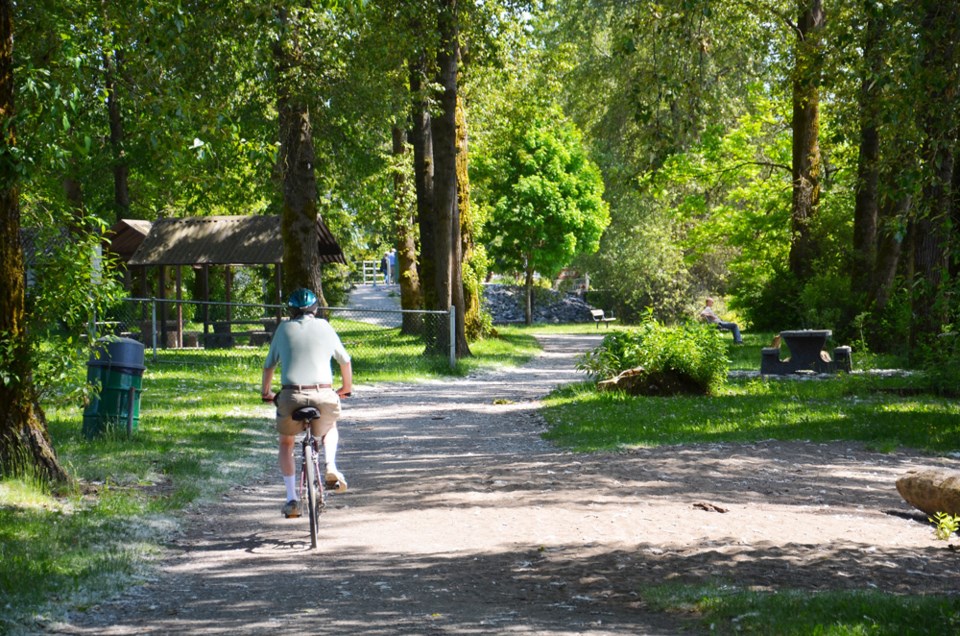Editor:
I was deeply disappointed to read that Burnaby council, as part of its Feb. 6, 2023, council report, had instructed city staff to advance next steps for the Green Recycling Organic Waste (GROW) project to be located at Fraser Foreshore Park.
Surely council must realize that provision for park space in our city must increase, or ― at a bare minimum ― be kept at existing levels. Case in point: try going to Barnet Marine Park on any given weekend (or weekday if sunny!) and count the number of available parking stalls. You won’t find any.
As one reader rightly mentioned, has Burnaby considered partnering with Metro Vancouver given their mandate and regional growth strategy? Has city staff attempted to acquire alternate land sites through negotiations? Further, has Burnaby considered invoking its expropriation rights to secure suitable non-parkland?
Please, council ― you need to consider all viable options.
Shina Chan
Editor:
Find another location for this recycling plant.
What about near the refinery on the inlet?
Or near Mandeville gardens between Marine Drive and Marine Way.
Or in another city of the Lower Mainland?
Stop destroying parkand wetland near the river.
Ruth Douglas
Editor:
Having read the minutes from the City of Burnaby Council meeting of January 26, 2023, I'm writing to protest against and express my concern about the proposal to move currently protected land out of parks zoning and into industrial zoning in east end of the Fraser Foreshore Park.
I've been a citizen of the City of Burnaby since 1998 when I purchased my home in South Burnaby. I am a regular user of Fraser Foreshore Park along with hundreds of other people. It is clear that the City of Burnaby was very forward thinking when they protected all of that land which, at the east end of the park includes marshland/wetland, estuaries and forest. The proposed area, which is located in the east end of the park, is home and hunting ground for eagles, hawks, owls, cranes, herons, ducks, beavers, voles, racoons, skunks, rabbits and coyotes in addition to a variety of reptiles and insects. Also, there is a designated bird sanctuary which the proposed Green Recycling Organic Waste (GROW) facility would be abutting. The whole of this end of the Fraser Foreshore Park was already disturbed in a big way during the development of the Metro Vancouver Waste-to-Energy Facility (WTEF) and all of the other buildings that have been erected as part of the Big Bend Development Plan. The animals in this area have only just settled down again in the last couple of years.
The percentage that the committee uses in their proposal to the City is extremely misleading and attempts to minimize the amount of parkland they are proposing be rezoned. Based on the map they provided, the area they designated as the proposed site is at least 1/3 of the total parkland located at the east end of the Fraser Foreshore Park. This part of the Park is geographically separate from the largest land mass of the Park located substantially west of this area. The two areas are joined by a kilometre-long paved foot path.
Rezoning land from parks to industrial zoning has negative consequences for the environment, local communities and public health. Parks are important natural spaces that provide a range of benefits including but not limited to recreational opportunities, improved mental and physical health for park users, ecosystem services like carbon sequestration, biodiversity conservation, and air and water purification. When parkland is converted to industrial use, these benefits are permanently lost, and the environmental impacts of industrial activities can have lasting effects on the surrounding ecosystem.
Burnaby showed foresight and leadership when the land in question was zoned as parkland. It would be a mistake to undo that. Once it is lost, it can NEVER be recovered. I have no quarrel with the proposed GROW facility. It seems to be an admirable goal financially, ecologically and environmentally for the city to undertake. However, the proposed parkland is the wrong place for the facility. There appear to be a couple of large empty buildings in the Big Bend Development Area that could perhaps be obtained and reconfigured to suit the requirements of the GROW facility and still have easy road access and easy access to the WTEF .
Eileen McDougall




